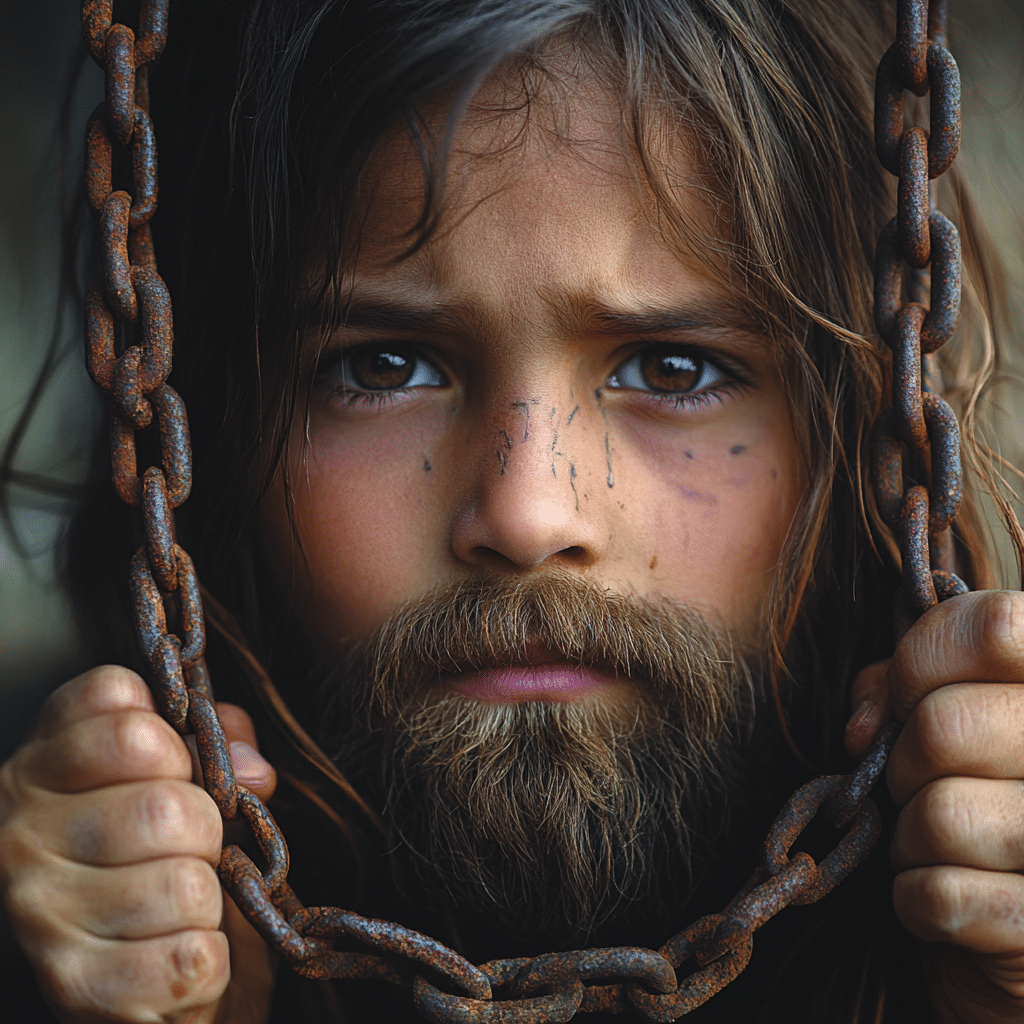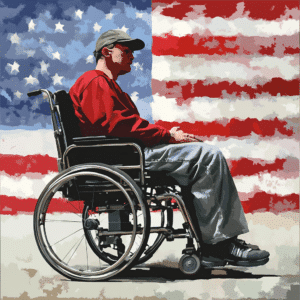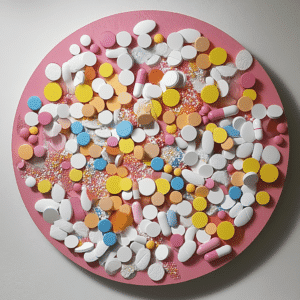When we dive into the topic of child custody and addiction, we enter a world filled with emotional turmoil and challenging decisions. For many parents grappling with their own substance use or that of a partner, the stakes couldn’t be higher. Child custody and addiction dynamics involve courts weighing the best interest of the child against a parent’s ability to provide a safe and stable environment. It’s a complex web, with nearly 60% of custody cases featuring at least one parent struggling with substance use. This reality complicates not just custody decisions but also the lives of those involved.
Parents facing these situations often feel isolated, overwhelmed, and scared. They often ponder, “Am I fit to be a parent?” or “Will my child be better off without me?” These powerful questions can haunt a parent’s mind. So, how do courts navigate this deeply rooted relationship between child custody and addiction? Each case is unique, sometimes leading to startling revelations that impact not only the parents but the children caught in the middle. To provide an understanding of this complex issue, let’s look at how addiction influences custody decisions.
The Complex Relationship Between Child Custody and Addiction
Understanding child custody and addiction requires us to unpack several layers. The legal system evaluates a parent’s fitness based on various criteria, including sobriety, the stability of their living situation, and the overall well-being of the child. This evaluation often includes professional assessments that bring to light the critical factors that will ultimately influence custody arrangements.
Consider the example of singer Kelly Clarkson, who found herself amidst contentious custody battles that underscored her estranged husband’s alleged addiction issues. The courts ensured children’s safety as a priority. The emotional toll on families can be immense, but it becomes clear that the legal system seeks to prioritize the child’s well-being above all else.
As the relationship between child custody and addiction evolves, it’s vital to acknowledge that potential biases may arise. Courts may unknowingly reflect societal stigmas surrounding addiction, which can lead to unjust decisions depending on the circumstances. Thankfully, ongoing awareness campaigns strive to change these perceptions and foster more compassionate decision-making that considers a parent’s journey, not just their past.

Top 5 Ways Addiction Impacts Child Custody Decisions
Courts often deploy professionals like social workers to evaluate a parent’s capability to provide a nurturing environment. Such assessments are critical, as they serve as a litmus test for parental fitness. For instance, after singer Kelly Clarkson fought for custody, the court ensured safety was prioritized, demonstrating the legal system’s serious approach when addiction intertwines with child custody.
The path to regaining custody usually hinges on a parent’s commitment to recovery. When actor Robert Downey Jr. struggled with addiction, his eventual dedication to rehabilitation was a game-changer. Demonstrating accountability through treatment compliance can significantly shift a parent’s standing in the eyes of the court.
Unfortunately, relapse can dramatically alter custody agreements. Parents struggling with addiction may temporarily lose rights, especially if relapse endangers the child. Celebrities like Demi Lovato faced similar scrutiny as they navigated their recovery journeys, raising questions about stability and reliability as a parent.
For some, maintaining visitation during recovery can add layers of complexity. Often, courts may mandate supervised visitation to ensure child safety. High-profile cases like Britney Spears illustrate how monitored interaction became necessary during her challenges, revealing widespread implications for parents battling addiction.
The emotional and psychological effects of parental addiction shouldn’t be overlooked. Studies from the American Academy of Pediatrics underscore these risks, noting that children with addicted parents face heightened chances of developing substance use disorders themselves. This reality must be a critical consideration in any custody discussion concerning child custody and addiction.
The Role of Courts in Balancing Rights and Responsibilities
Through the lens of child custody and addiction, courts stand in a challenging position. They’re tasked with ensuring a child’s safety while also weighing a parent’s rights. This delicate dance may lead to decisions that favor child guardianship arrangements or alternative caregiving solutions, particularly when both parents are struggling with addiction.
Take the 2023 ruling in “In the Matter of the Children of Jane Doe” as an illustrative case. It carved a path by integrating the complexities of both parents’ situations while aiming for the child’s stability. Here, the court gave careful consideration to the substance abuse issues of each parent, striving to maintain a supportive environment for the children amidst chaos.
There’s hope in these rulings, with increasing understanding around addiction’s complexities. Some courts utilize collaborative parenting models or appoint guardians who best serve the child’s heart and soul. This approach acknowledges that supportive family dynamics can grow even from challenging backgrounds, ultimately prioritizing a child’s stability.

Effective Strategies for Parents Facing Custody Challenges Due to Addiction
For those grappling with child custody and addiction, there are actionable steps to take. Falling into despair can feel all-consuming, but breaking down challenges into manageable pieces can clear the path forward.
These strategies can reaffirm a parent’s commitment to both recovery and the emotional safety of their children. The road may be tough, but clear steps can help highlight a parent’s dedication to improving their circumstances.
Final Thoughts on Child Custody and Addiction
Navigating the waters of child custody and addiction is no easy feat. It’s a labyrinthine journey, rife with emotional roller coasters and hard choices. As society collectively recognizes the nuances intertwined with substance use disorders, there’s hope for more compassionate legal frameworks.
Understanding that recovery serves as a journey rather than a one-time event reshapes the narrative around addiction and parenthood. Families can heal, and understanding can thrive, particularly when visibility into these issues increases. As we foster environments that support healing and understanding, children and parents alike can find healthier family dynamics that endure beyond struggles with addiction.
For all those facing these uphill battles, know that you’re not alone. Organizations like Mothers Against Addiction are committed to guiding you through the maze of challenges, providing resources and support every step of the way. Remember, it may be a journey, but reaching the light at the end is no small victory.
Child Custody and Addiction
When addiction sneaks into the lives of parents, it can throw a wrench into their custody battles and overall rights. A staggering statistic reveals that about 26% of children in the U.S. live with a parent who’s struggling with substance abuse. This reality often leads to important discussions about guardianship for children of addicts, which can provide a safety net for kids during turbulent times. Such arrangements can help ensure that children go to family members or trusted friends who can provide the love and stability they need when their parent is unable.
But there’s more! Many communities offer support centers, like the regal ua colorado center, aiming to assist parents in recovery. These centers not only address addiction but also offer guidance on legal matters, such as custody. When parents make strides toward sobriety, they sometimes face legal challenges for recovering addicts that could influence their ability to regain custody or visitation rights. Overcoming these hurdles is crucial for parents looking to reestablish their role in their children’s lives.
What’s fascinating is that just as recovery can lead to positive change, kids can also be resilient little warriors. They adapt and often flourish with proper support networks. Interestingly, around 90% of children of addicted parents may show no signs of emotional or behavioral disruption if they receive stable care and love. Speaking of support, some may wonder about professionals’ views on this regarding employment rights in recovery—and they’d be surprised to find that there are protections in place. These resources help parents reclaim their footing while ensuring that their children receive the care they deserve. And yes, indeed, even little bits of trivia, such as candy spelling net worth, remind us that support comes in many forms and often includes unexpected influences!
To sum it all up, child custody and addiction is a multifaceted issue affecting countless families. It includes emotional, legal, and even social layers that can overwhelm anyone. But don’t fret! With solid support and education, parents can change their circumstances for the better. Just like solving the latest plot twists in onepiece 1088 or deciphering the line in Spanish, each small victory adds up! After all, the journey of recovery is a marathon, not a sprint, and every step counts greatly for both parents and their children.

Does depression affect child custody?
Depression can affect child custody if it’s bad enough to keep a parent from taking care of their kids. If someone can’t handle daily tasks, like getting their children to school or taking care of their needs due to severe symptoms, a court might take that into account when making custody decisions. It’s important for anyone struggling to reach out for professional help.
Can you lose custody if you do drugs?
Parents can definitely lose custody if drug misuse impacts their ability to care for their children. Courts look closely at what’s best for the child, and if substance use threatens a kid’s well-being, it could lead to a loss of custody.
What is the biggest mistake in custody battle?
The biggest mistake in a custody battle is often letting emotions run the show instead of focusing on what’s best for the kids. Neglecting to gather solid evidence or trying to manipulate the situation can backfire and hurt one’s case in the long run.
How does alcoholism affect child custody?
When it comes to alcoholism, parents usually won’t get custody unless they can prove they’ve gone through significant rehab and that having access to their children is in the kids’ best interest. Courts are concerned about the stability and safety the children will have in their care.
Why would a mother lose custody of her child?
A mother might lose custody of her child if she’s struggling with substance abuse, severe mental health issues, or if there’s evidence of neglect or abuse. Courts prioritize the child’s safety and well-being above all else.
What is the definition of an unstable parent?
An unstable parent is typically someone who can’t provide a consistent, safe environment for their children. This instability can come from issues like substance abuse, mental health struggles, or inability to meet basic parenting responsibilities.
How to protect a child from an alcoholic father?
To protect a child from an alcoholic father, it’s best to set clear boundaries and seek professional help, either for oneself or through legal means. Turning to family resources or support groups can also help ensure the kid’s safety and well-being.
Is drug addiction grounds for divorce?
Drug addiction can certainly be grounds for divorce, especially if it affects the family’s day-to-day life or the safety of the children. Many people choose to take legal action to protect themselves and their kids from the fallout of addiction.
Can the father be on drugs affect the baby?
If the father is on drugs, it can negatively affect the baby, especially during pregnancy or in situations where the father is living with the child. The child’s well-being is a top priority, and any substance abuse could lead to serious concerns about safety.
Who wins most child custody cases?
In custody cases, the one who usually wins is the parent who can best demonstrate they can provide a stable, loving, and safe environment for the child. Factors include the parent’s ability to care for their kids, consistency in their parenting, and any issues like substance abuse.
What is the malicious parent syndrome?
Malicious parent syndrome refers to a situation where one parent manipulates or uses the child to harm or control the other parent. This behavior can lead to severe emotional distress for the child and is looked down upon by the court.
How do you win a custody battle against a narcissist?
Winning a custody battle against a narcissist can be tough, but focusing on documented evidence of your parenting skills and maintaining a calm demeanor can help. Having support from professionals and being prepared is key to navigating those tricky waters.
What is proof of alcohol abuse?
Proof of alcohol abuse can be shown through various means like police reports, medical records, missed workdays, or witnesses who observe the behavior. It’s crucial to collect as much accurate and clear evidence as possible.
What is the parent alcohol syndrome?
Parental alcohol syndrome isn’t a widely recognized term, but it often refers to issues related to a parent’s alcohol use affecting their ability to care for their children. Abusing alcohol can definitely result in unstable environments that are harmful to kids.
What happens to children when both parents are alcoholics?
When both parents are alcoholics, children can suffer significantly. They might face neglect, unstable living situations, and emotional distress, which can lead to serious long-term issues in their development.
Is mental illness a reason to lose custody?
Mental illness can be a reason to lose custody, especially if it’s severe enough to hinder a parent’s ability to care for their kids. Courts usually want to see that proper treatment and support are in place to ensure the child’s safety.
How to prove depression in court?
Proving depression in court can be done by presenting medical records, therapy notes, or testimony from mental health professionals. Showing how the condition affects day-to-day parenting can also be a factor in custody decisions.
Who wins most child custody cases?
Most child custody cases are decided based on what’s in the child’s best interest. Factors include the emotional and physical stability each parent can offer and which living situation will provide the most consistent support.
How does emotional abuse affect child custody?
Emotional abuse can seriously affect child custody arrangements because it damages the child’s well-being and development. Courts will look for evidence of such abuse, as it directly impacts the child’s overall safety and happiness.




























